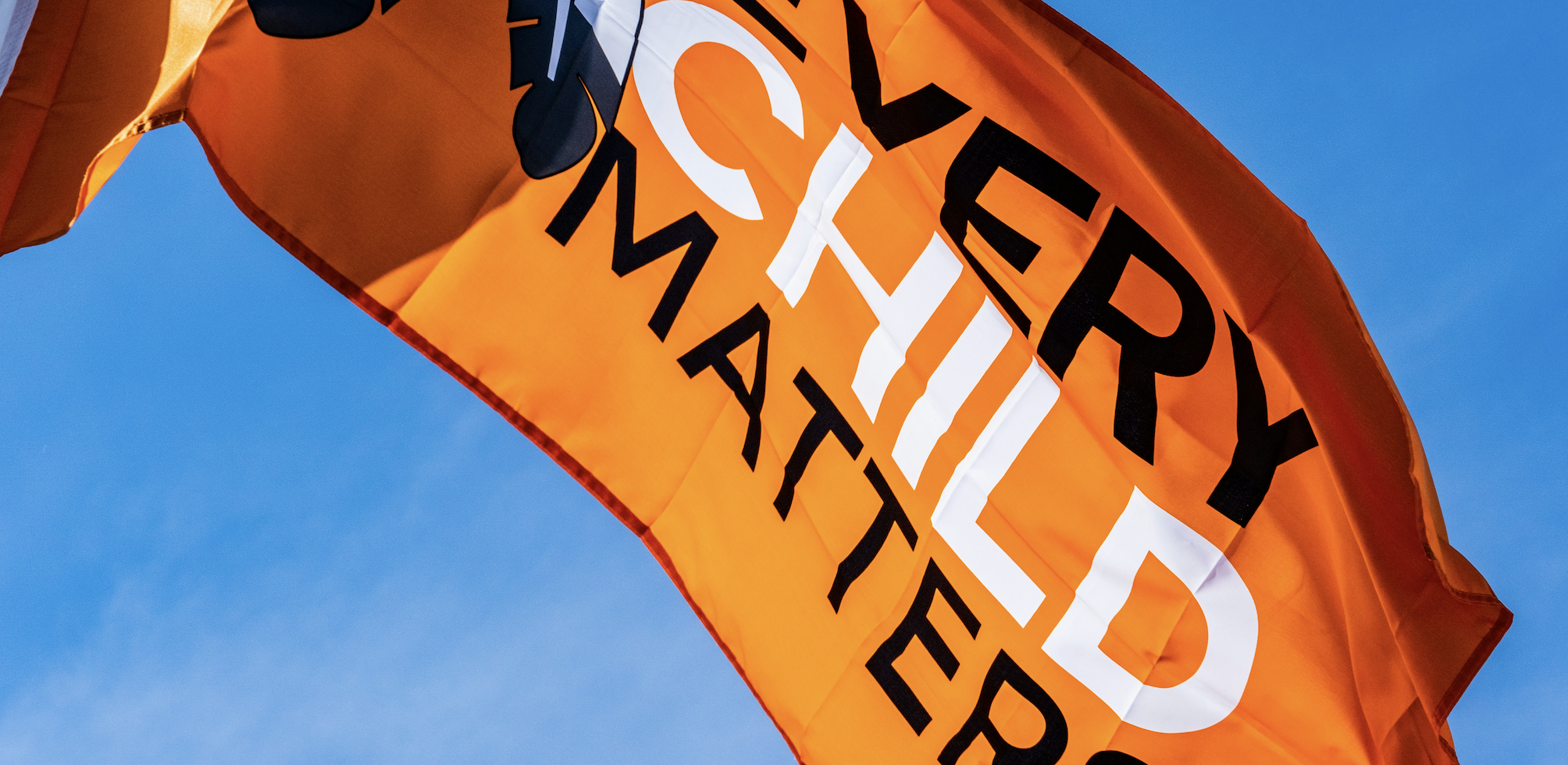Sep 28, 2025

Warning: This report refers to residential schools and may be disturbing for some readers. Help is available by calling the Residential School Survivor Support line at 1-866-925-4419
Hello to all the readers! Thanks for being here to acknowledge an important day together. My name is Denise, I am here with Vox Mental Health completing my student practicum and am excited about working through the Affordable Therapy Program. I am coming to you with 19 years of social work experience and am a proud member of Hiawatha First Nation.
September 30 is National Truth and Reconciliation Day in Canada. This is a day to commemorate the Residential School Legacy and to honour the buried children there, the missing/surviving children and the families who were devastated by the loss of their children.
The first residential school to open was in Brantford Ontario, and was the last to close in 1996; not even 30 years ago. Only 175 kms away, and all across the nation, Indigenous children were taken away from their homes, from their family, culture and were forced to “assimilate” through education in Brantford Ontario and all over Canada. This assimilation was written into our Government’s legislation and was made law. The agenda you ask, was to rid Canada of Indigenous people who wished only to be themselves:
Canada’s 1969 White Paper on Indian Policy (authored under Pierre Elliott Trudeau and Jean Chrétien), It proposed the abolition of Indian status, treaties, and the Department of Indian Affairs — which Indigenous leaders described as an attempt at cultural erasure.
The “law” allowed police, the “Indian” agent and child welfare workers to take children who they deemed to be in “need of education” to schools that were not safe, were not places fit for housing children and forced to attend classes that taught them that their culture was wrong and shameful. (https://nctr.ca/exhibits/residential-school-timeline/)
Sir John A Mcdonald initiated perverse/racist thought into reality by permitting the Residential school system in 1883. I am not great with math, but that’s 113 years of oppressing, assaulting, abusing, murdering, separating from family, separating from culture/language, mind controlling, and subjugating innocent beautiful children.
The survivors!! Bold and brave, they told their stories and with the help of the Truth and Reconciliation Commission which was established in 2008 as part of the Indian Residential Schools Settlement Agreement. It came with a mandate to document the history and lasting impacts of the residential school system. Over seven years, until its final report in 2015, the Commission gathered testimony from more than 6,000 survivors and their families through national and community hearings, sharing circles, and written submissions. It examined government and church archives, produced a multi-volume final report, and issued 94 Calls to Action aimed at redressing the legacy of residential schools and advancing reconciliation between Indigenous and non-Indigenous peoples. The TRC’s work was both investigative and educational, fostering public awareness while providing survivors with a platform to share truths that had long been silenced.
National Day for Truth and Reconciliation came to exist as a direct response to the Truth and Reconciliation Commission of Canada (TRC), which investigated the history and impacts of the residential school system. In its 2015 Calls to Action, the TRC recommended that a statutory holiday be established to honor survivors, their families, and the children who never returned home. The idea gained momentum after the 2021 confirmation of unmarked graves at former residential school sites, which heightened public awareness of these injustices. In June 2021, the federal government passed legislation to create the holiday, formally recognized each year on September 30, aligning with the grassroots Orange Shirt Day that began in 2013 to commemorate residential school survivors.
There is a lot of information to be found about the history of Residential Schools in Canada. So, let’s take a peek at some reputable sources:
1) Canada’s Truth and Reconciliation Commission estimated that more than 6,000 children died while at residential schools: https://usw.ca/theres-no-denying-it-indigenous-children-suffered-and-died-at-residential-schools/
2) The National Gathering of Unmarked Graves Summary Report: “When asked about the prospect of learning more about the truth of these stolen babies, forensic pathologist Dr. Rebekah Jacques cautioned participants that although we know from Survivor truths that there were babies born at the institutions, and that some were burned in the furnaces, it may be very difficult to obtain forensic evidence of these truths.” https://osi-bis.ca/wp-content/uploads/2024/06/OSI_SummaryReport_Iqaluit2024.pdf
3) Canada's Dark Secret Documentary: Canada's Dark Secret | Featured Documentaries
Acknowledging trauma through the stories shared by survivors is a critical step in healing, particularly from a social work perspective that emphasizes empowerment, validation, and relational support. Narrative sharing allows survivors to reclaim voice and agency after experiences that silenced them, and research shows that telling one’s story in a supportive context helps integrate traumatic memories into a coherent narrative, reducing feelings of isolation and shame (Herman, 1997). From a social work lens, bearing witness to these stories embodies trauma-informed principles such as trust, safety, and collaboration, which foster resilience and post-traumatic growth (Knight, 2015).
In contrast, denying or dismissing a survivor’s reported history can compound the original harm by reinforcing patterns of silence, invalidation, and systemic oppression. This means, that just like you who might tell about a trying time in your lifetime to someone else while expecting to be believed without prejudice, the same is to be said for Indigenous peoples of Canada. Such denials of lived history do retraumatize survivors, deepen mistrust of helping systems, and hinder the possibility of recovery, as it obstructs the validation and social acknowledgment that are fundamental to healing. Collective acknowledgement, therefore, not only affirms the survivor’s truth but also challenges systemic denial and promotes restorative healing at both individual and community levels.
Maybe you can resonate with this idea: “being heard and validated in your pain and suffering can be paramount to your healing process.” To be heard or feel that you have been heard, you need the listener to be attentive, non-judgemental, compassionate and grounded. The same can be said for Indigenous peoples. Just listening to the stories of Indigenous peoples can help in their healing but also the healing of Canada.
When dealing with people who are hurting or grieving, the effective and free thing to do is to listen. Honour the stories and histories of Indigenous people. For the Survivor: the Vox team is here for you and are cheering loudly. Congratulate your resiliency, cheer for yourself and those that chose progress through the pain!
Know that here at Vox Mental Health there are people like me and this wonderful team that will honour you when privileged to hear about your life, story, successes and challenges. There are safe spaces for you such as your local friendship centre where you can celebrate and learn about culture. What is better than having someone who will clap for you when you’ve done an incredible thing, especially when it was hard!
Here’s some Tips:
Learn about Indigenous culture, spend time in Indigenous spaces, and unique qualities in people and their culture. Allyship and comradery are ways in which we can be supportive and promote equal opportunity for everyone in support local Indigenous businesses. We can appreciate the special and having a positive self image! It gives space for you to be you, and for others to be themselves.
To bring us all together - because really we are actually all just humans being human - I will say to survivors and ally’s alike, congratulate yourself! You made it to the end of this post and I am proud of you for investing your time to learn about this important issue. Caring for yourself and others is always worth congratulations.











